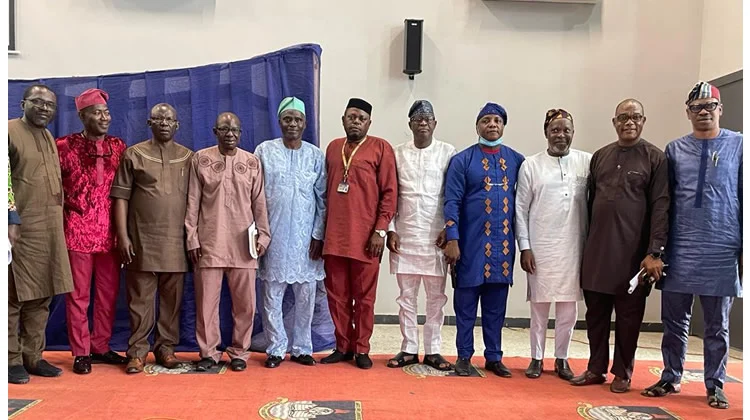The Dean of College of Humanities at the Tai Solarin University of Education, Prof. Rasheed Ajetunmobi, has urged indigenous Lagosians to stop selling their landed inheritances indiscriminately.
Ajetunmobi warned that with the rate of the sale of lands and property by autochthonous Lagosians to non-indigenes, the true sons and daughters of the soil might be displaced entirely from the state in the coming years.
The don stated this on Friday during a lecture delivered on the occasion of the first Distinguished Lecture Series of the Department of History and International Studies at the Lagos State University, Ojo.
Ajetunmobi delivered the lecture to a packed gathering of university administrators, lecturers, students, other members of the university community and guests.
Tracing the history of Lagos from the 15th to 18th century, the academic said the Awori people, the first dwellers of the geographical entity now known as modern Lagos, were not criminals, adding that many of those committing crimes in Lagos are the 20th and 21st century settlers who had no “identifiable extended family houses.”
He stated that Lagos, a bursting population of over 20 million people, was a melting pot of cultures, and therefore “hospitable to a fault.”
Ajetunmobi stated that the willingness by original Lagosians to accommodate non-indigenes had been abused by non-Lagosians who now claim Lagos is a “no man’s land.”
“This concept of No man’s Land emanated from the extreme hospitality of the traditional Lagosians and their willingness to accommodate other people.
“For the omo abule s’owo- the Awori land barons- they are gradually learning not to sell their inheritance at miserable prices. Many indigenes of Lagos State can no longer point to their family houses in Lagos, Ido, Ebute metta, Surulere or New Lagos and by extension Epe, Ikorodu, Badagry and Aworiland.
“Many of those committing crimes in Lagos, apart from land issues, are the 20th and 21st century settlers in Lagos State. They have no identifiable extended family houses; some have committed crimes in their homeland and escaped to Lagos and there is nobody to report them to. Others were principally sent to Lagos to make money by whatever means and to return home with their gains at the end of every year for celebration and re-polishing of their instrument.
“Who would tell our grandchildren and generations to come that the indigenous Lagosians were not essentially criminals until the arrival of the 20th and 21st century settlers?”
Continuing, the don claimed the criminality introduced in the state by non-indigenes, had painted a suspicious outlook of Lagos to visitors and outsiders.
“For almost a century now, people coming to Lagos for the first time are often advised and warned concerning the land and the people of Lagos State by their friends and relations. The common views have been that Lagos is the land of dupes, tricksters, swindlers, magicians, killers, cheats, and ‘Gbajue’ as sometimes used. It is the milk and honey that have served as inducement or pull factor to people of other areas who see Lagos as a virgin land for exploitation, sharing of cake and looting.
“Immigrants on leaving home are often accompanied with the prayer; you will bring back home the reward of your exploitation in Lagos (Amen) ‘Wa ko ere oko dele.’ Whereas, the aboriginal inhabitants have no other home than Lagos State,” he said.
Ajetunmobi further stated that the economic attraction of Lagos is responsible for the increasing number of beggars littering the nooks and crannies of the state.
“Perhaps more than any state in Nigeria, Lagos State houses the highest number of beggars. Traditionally, Lagosians are not beggars even those that were called alagbe – were the traditional musicians who praise-sing to be rewarded. The real beggars gradually increased in number from 1960 onwards as a result of Lagos hospitality and belief that emphasises appeasement, sacrifices, Zakat and Zadaqat,” he explained.
The academic lamented that “some of the indigenous people of Lagos State today have been subsumed, while some have developed lukewarm attitudes. This view has completely obliterated the traditional faces of Lagos and Lagosians, if care is not taken, the concept of Lagosians will die a natural death.
“The people should see themselves as one and work in unison to be in charge of their inheritances. A situation where those who cannot point to their ancestral family houses in Lagos State are the ones running our affairs and telling us what to do must be checked. Onigba lo npe igba ni ankara t’won fi ba ko ile – If you call your land a dumping ground or packer of rubbish, it would be used appropriately. We must not be on-lookers; Frank Fanon said “every onlooker is either a coward or a traitor.”

